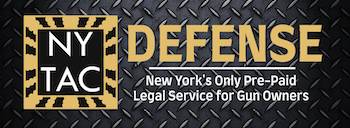Representation.
Juvenile Delinquent Proceedings
Under New York law, juvenile delinquents are people who are older than 7 but younger than 16 and committed acts that would constitute crimes if they were adult. Juvenile delinquents cannot be held accountable for their criminal acts due to their young age, or cannot be held accountable because they have been taken out of criminal court and placed in family court pursuant to New York Criminal Procedure Law. Claims about accountability and age may be made based upon Penal Law provisions related to infancy. The legal meaning of infancy is different from the colloquial one. In the law, infancy is a defense to criminal responsibility for particular crimes because under a certain age a person cannot form the required criminal intent to commit the crime.
It may be beneficial to argue that your child should be diverted from the criminal justice system and that they should instead be placed into juvenile delinquency proceedings in family court. Our experienced New York juvenile delinquency attorneys may be able to help divert your child away from prison and into family court where your child’s needs will be considered in determining their accountability for their acts. Call us today for a free consultation. No child in New York may be charged with a crime if they are younger than 7. That is the absolute minimum age for which criminal responsibility may be attributed to any acts.
New York family courts have exclusive jurisdiction to evaluate juvenile delinquency. Here, the quasi criminal character of the juvenile delinquency procedure is distinguishable from criminal court. In criminal court the person accused is known as a defendant and the prosecutor represents the people. In juvenile delinquency hearings, the government is represented by a presentment agency and the child is known as a respondent. The most important factor in determining juvenile delinquency is how old the respondent was at the time of the crime. Without establishing how old the respondent is the charging instrument, the delinquency petition, must be dismissed. The burden is on the respondent to move for dismissal where the presentment agency cannot prove the defendant’s age.
The purpose of a juvenile delinquency hearing is to establish whether the child is a delinquent and what sort of judicial disposition should be made of the child if the child is found to be a delinquent. Family court considers both the needs of the public and the needs of the respondent in making their dispositions.
Children without the means for an attorney will have one appointed to them by the court. There is no test of means to see if the child’s parents can afford an attorney. Unless an attorney is provided for the child by the parents or a third person, the child must have representation appointed for them. A child appearing before a juvenile delinquency hearing has the constitutional right to effective counsel as well.
Juveniles may be arrested if the police believe that a crime has been committed within the geographic area of the police officer’s employment. The belief standard that the police officer must form is probable cause. In order to justify the arrest in court the prosecution must show that probable cause existed to form a belief that the crime was committed, and that the juvenile was the one who violated the law.
Children have the right to receive Miranda warnings and hold the Fifth Amendment rights against self-incrimination, right to counsel, and the right to remain silent as well.
The moment a child is placed under arrest the police are required to make every effort to contact the parent or person responsible for the child’s care. If that person is not available, the police must give notice to the someone else who the child lives with.
It may be beneficial to argue that your child should be diverted from the criminal justice system and that they should instead be placed into juvenile delinquency proceedings in family court. Our experienced New York juvenile delinquency lawyers may be able to help divert your child away from the criminal justice system and into family court where your child’s needs will be considered in determining how their case should be handled. Call us today for a free consultation.

















